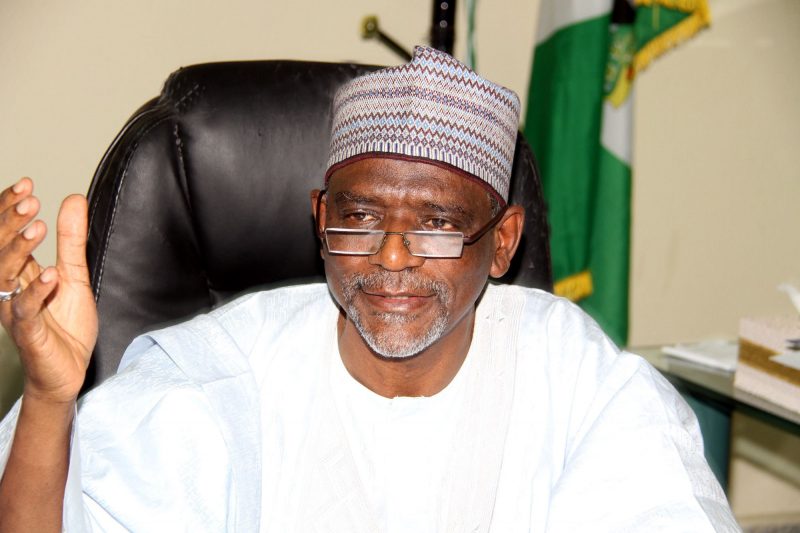Nigeria used to be home to quality higher education and attracted students and lecturers from many countries in the early 60s. Many students, especially across Africa, came to Nigeria in search of education.
It was a very common sight in major universities in those days to see Nigerians of all classes and foreigners from India, Ghana and other African countries in Nigerian universities which showed that education is universal and people went around the world to teach and learn.
But today, that is no longer the case as Nigeria has become the country with the highest education migrants. Many Nigerians, especially the elite, prefer to go outside the country in their search for higher education believing the quality being offered in our public varsities is low.
While concern about the quality of graduates produced in the country continues, attributed to, among others, poor infrastructure, incessant strikes, insecurity and poor learning environment, many parents prefer their children to go to other countries to study, even when they cannot ascertain the quality of the universities they send their children to.
In most cases, many who could not send their wards abroad resort to private universities within the country, with most of them paying almost what it would cost for them to study abroad.
A retired Permanent Secretary at the Federal Ministry of Education, Dr MacJohn Nwaobiala, recalled his days at the University of Ife, saying there were many foreign students with some on scholarships and that mixing with them was also very healthy.
“You shared not just in the class, but socially getting to know about countries in Africa and outside Africa. Those were things that as young men broadened our perspectives. Those were things that influenced our philosophies and our worldview and some of what sharpened our decisions,” he said.
“So, in the school then, the way it was structured, about 90 per cent of the students were living on campus. If I see my classmates or some of my students today, as old as I am now I will recognise them because it was mostly meeting.”
“When I went to the University of Bradford many years after, I met one of my lecturers in social science. Somehow, she had heard I was coming to do a programme and when I arrived they arranged a reception for me. That was how good it was,” he said.
Nwaobiala said then, students were motivated and given the opportunity to excel. “Those things have changed. Now, there are a lot of challenges in our educational system. Look at the strikes; look at our institutions and the level of deterioration; the environment and issue of insecurity that are over-exaggerated. Those are the things that have contributed and stopped people from coming here.”
He said in the past, they had volunteers; young men that finished school who come to this part of the world to teach and while teaching they’re also learning.
“But now, how do you ask a lecturer or a professor from a reputable school outside the country to come to Nigeria and face frustration? he asked.
“Schools are closed. And also when you look at the take-home pay of our lecturers, it’s nothing to write home about. That’s one of the things that I always insist we need to review; what our lecturers take as salary, incentives and their welfare packages.”
He further said: “Look at the way Nigerians go to Ghana and other countries. These things filter out and they tell you, ‘you want to come to Nigeria to school? No, don’t go there. A four-year course but you’re going to do it in seven years’.
“There are a lot of distractions; many of our lecturers have been out of school for a while. Of course, they must survive so they go looking for contracts or consultancy work.
“And honestly, I also feel that it has come to a situation where, assuming things were normal, students should also have the opportunity of evaluating lecturers. Maybe those are things that would make the lecturers sit up.”
The retired permanent secretary also berated the terminologies of sorting lectures and buying handouts, saying, “Those are things that we need to look into. While the lecturers are also agitating for improvement in the schools, they should also be looking inwards to see how they can also contribute to an improvement in the education sector.”
Though he said, he has no problem with the curriculum Nigeria is operating, there is a need to infuse entrepreneurship and technical education into the system. “When I say infuse, I mean give it priority.”
He said those are the challenges, maintaining that many foreign students will not want to come to Nigeria with the kind of information and stories they hear about the country.
“The truth also is that you see our young people moving outside the country in droves because of the facilities abroad, the organisation in the institutions.
“When you are learning, you are learning and you go through the real education and you also notice that once they finish, they are smart enough to work for those governments. That is the brain drain that we are suffering from in Nigeria.”
For Michael Sule, an educationist, Nigeria has since lost its glory in providing quality education in its public universities which is the reason behind many of the citizens going overseas.
He said: “You don’t expect to attract outsiders into your home when you have moved outside. Besides, no students will want to suffer what Nigerian students in public institutions are suffering at the moment due to strikes, poor economic situation and insecurity.”
He insists that the government needs to be intentional about running public schools and tackle all challenges to bring them to par with their counterparts outside the country.
A senior university administrator who does not want to be mentioned said: “In the past, we used to attract students from other African countries, but that is becoming difficult now. As I said, the nature of our economy, the restlessness in the system, and to worsen all, the security situation now, all these impact on what we are doing.
While lamenting the economic situation of the country, he said when the naira started sliding, it became difficult for government to attract people from outside, and it is also not profitable for foreigners who are here to remain.
“Gradually, our educational sector became completely localized. In a whole university today, you can hardly find one or two foreign lecturers or staff. And students from other African countries who used to come, now find it difficult to do so because of the restlessness in our educational system and some of the difficulties in several other activities,” he said.
He further said: “It is not economically attractive for people to come. Now if you convert the salary of a professor in Nigeria, about N400,000 is less than $1,000. Now, tell me the attraction for somebody to leave America or another African country and say he’s coming to teach in Nigeria to earn $700 or $800 in a month.”
He said, apart from the low salary that people receive, there’s also poor equipment. So people find it difficult to survive in the system. “So you could understand why people would prefer to go to Dubai, Saudi Arabia, UK or other such places.”
To address these issues around our higher institutions, he said: “First, we have to address the economic situation; secondly, the policies being implemented to streamline the university to civil service structure is making things so difficult; and thirdly, the autonomy that universities require to operate as internal and global institutions is simply not there. They have been so localised.”
He, however, suggested that education needs to be diversified. “We need diversity in the system. Some of the policies also do not help, like the IPPIS and others. They make things difficult for those within, not to talk of those outside. At the end of the day, universities are just made unattractive – not just universities, polytechnics and colleges of education.”

 Join Daily Trust WhatsApp Community For Quick Access To News and Happenings Around You.
Join Daily Trust WhatsApp Community For Quick Access To News and Happenings Around You.


